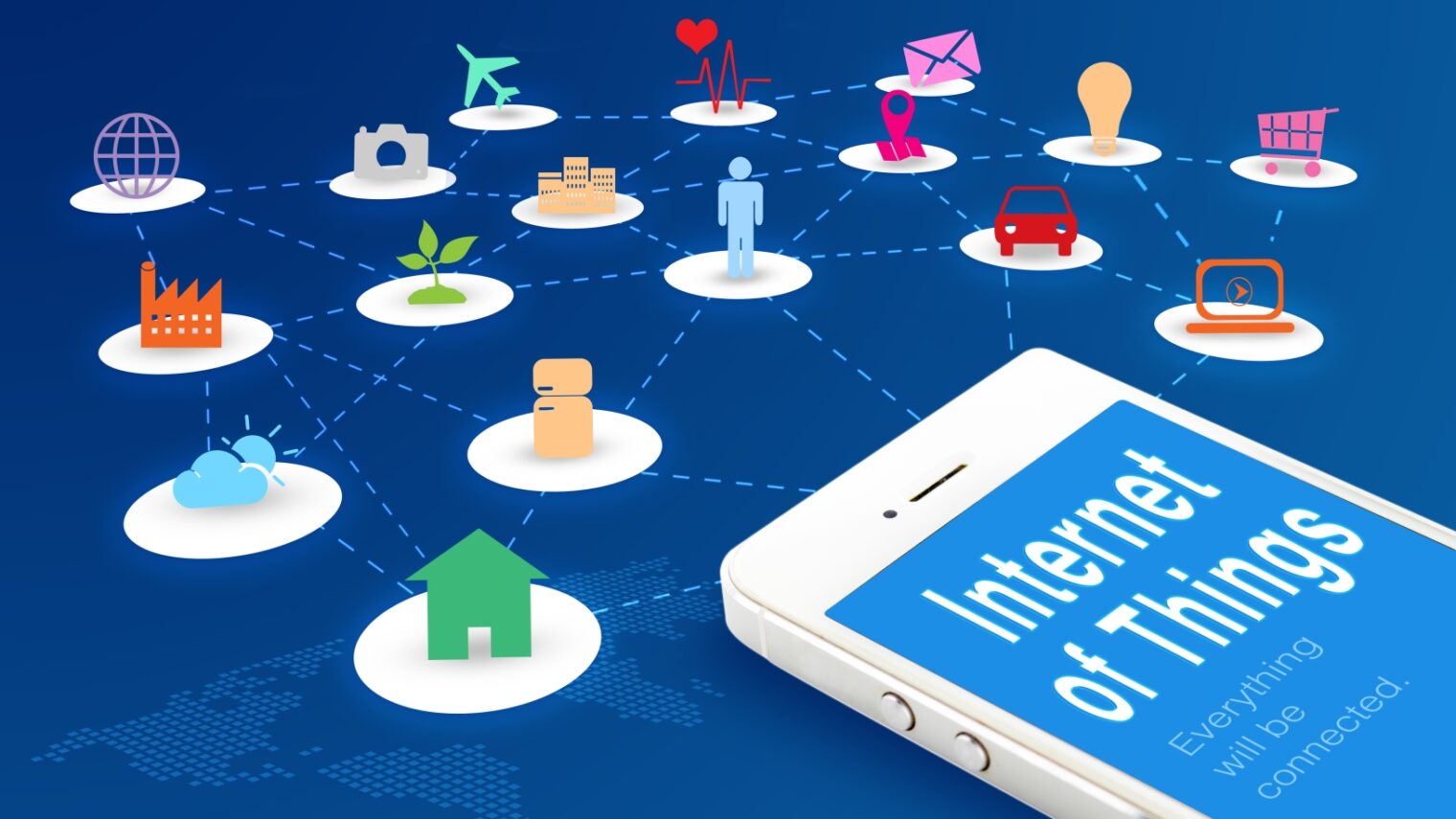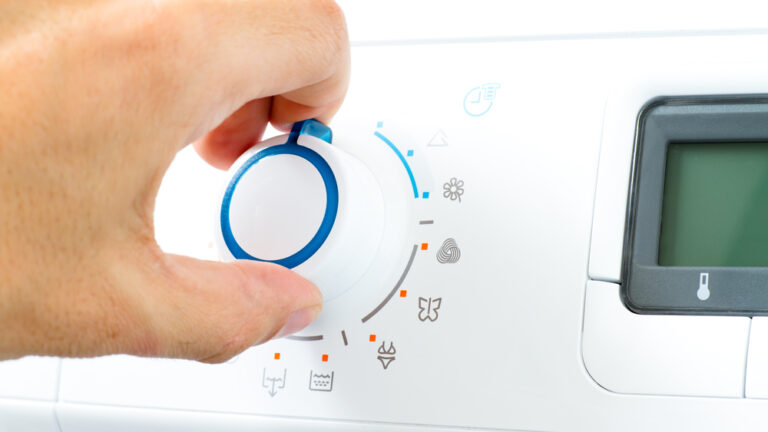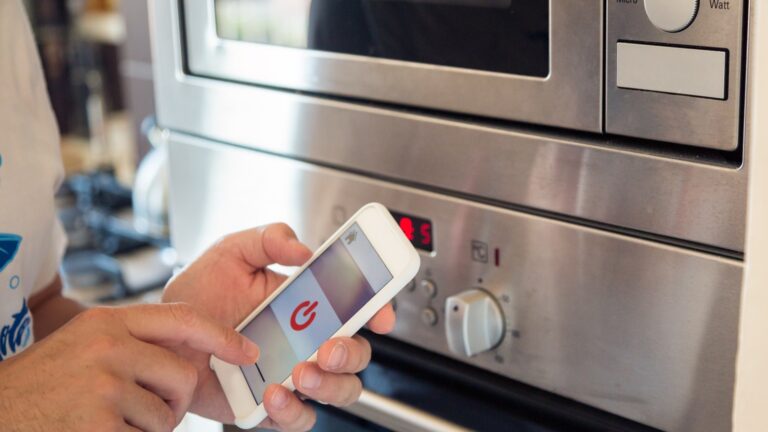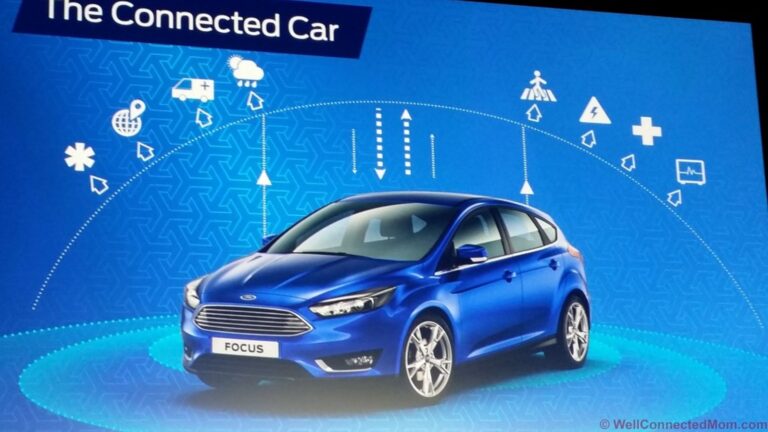Many people still aren’t exactly sure what the Internet of Things is all about.
But experts with their finger on the pulse of this massive connectivity trend predict that Israeli companies will take a leading role in building the IoT bridge between the digital and physical worlds to transform everyday lives and markets.
That’s the conclusion of a three-month study recently released by Innovation Endeavors, the Silicon Valley and Tel Aviv early-stage venture-capital firm solely backed by Google Executive Chairman Eric Schmidt.
The study looked into 330 Israeli IoT companies across five verticals and 23 sub-verticals, from the seed stages all the way to revenue growth.
“By now, nearly everyone has been exposed to the Internet of Things (IoT) in one way or another, whether through a Fitbit bracelet, a Nest smart thermostat, or now even the Apple watch,” according to a report summary.
“But despite all of the hype, IoT is still something of an enigma, both to laymen and investors alike, and from Silicon Valley all the way to Tel Aviv. Moreover … there is a general lack of belief that Israel can be a leader in IoT.
“However, at Innovation Endeavors in recent months, we have seen a growing amount of impressive IoT activity coming out of Israel. This intrigued us and led us to do a three-month deep dive into the space. The goal was to both demystify the existing understanding of IoT and identify the trends, sectors, and technologies that can serve as significant opportunities for Israeli entrepreneurs in this space.”
“The sectors that are currently most relevant to IoT – like cyber security, ag-tech, and healthcare – also happen to be the ones in which Israel is already the most advanced around the globe.”
Their “deep dive” involved poring over more than 50 market research and analyst reports, and meeting with top Israeli IoT companies and leading experts from around the world.
“We found that if Israeli entrepreneurs can capitalize on their existing IoT-related proficiencies, they can dominate in this space,” says Aaron Dubin, a member of Innovation Endeavors’ investment team.
“This is mainly because in Israel IoT already actually has strong, real context. In other words, the sectors that are currently most relevant to IoT – like cyber security, ag-tech, and healthcare – also happen to be the ones in which Israel is already the most advanced around the globe.”
Key findings
The results of the Innovation Endeavors study are presented in a visual “landscape.” These are the key findings on that landscape:
1. IoT activity is booming in Israel
Israel is home to approximately 6,100 active startups in total, of which IoT represents a surprisingly whopping 5 percent. These companies pertain to all verticals, stages, and levels of the stack, and address unique problems across many major markets.
2. Israeli IoT leverages Israel’s strengths in sectors like healthcare, life sciences and cyber-security
Two of many examples given are Argus Security, which is building a firewall for the connected car of the near future; and Consumer Physics’ SCiO pocket molecular sensor that gives users instant info on the chemical makeup of food, medicine, plants and more.
3. The Israeli IoT industry is still immature
Most companies on the landscape are still in the R&D or initial revenues stages, and about 80% are focused on applications rather than IoT platforms or components. This suggests that Israeli startups have not yet found their long-term product-market fit, but it also represents an opportunity for companies to capitalize on such “whitespaces” in the landscape.
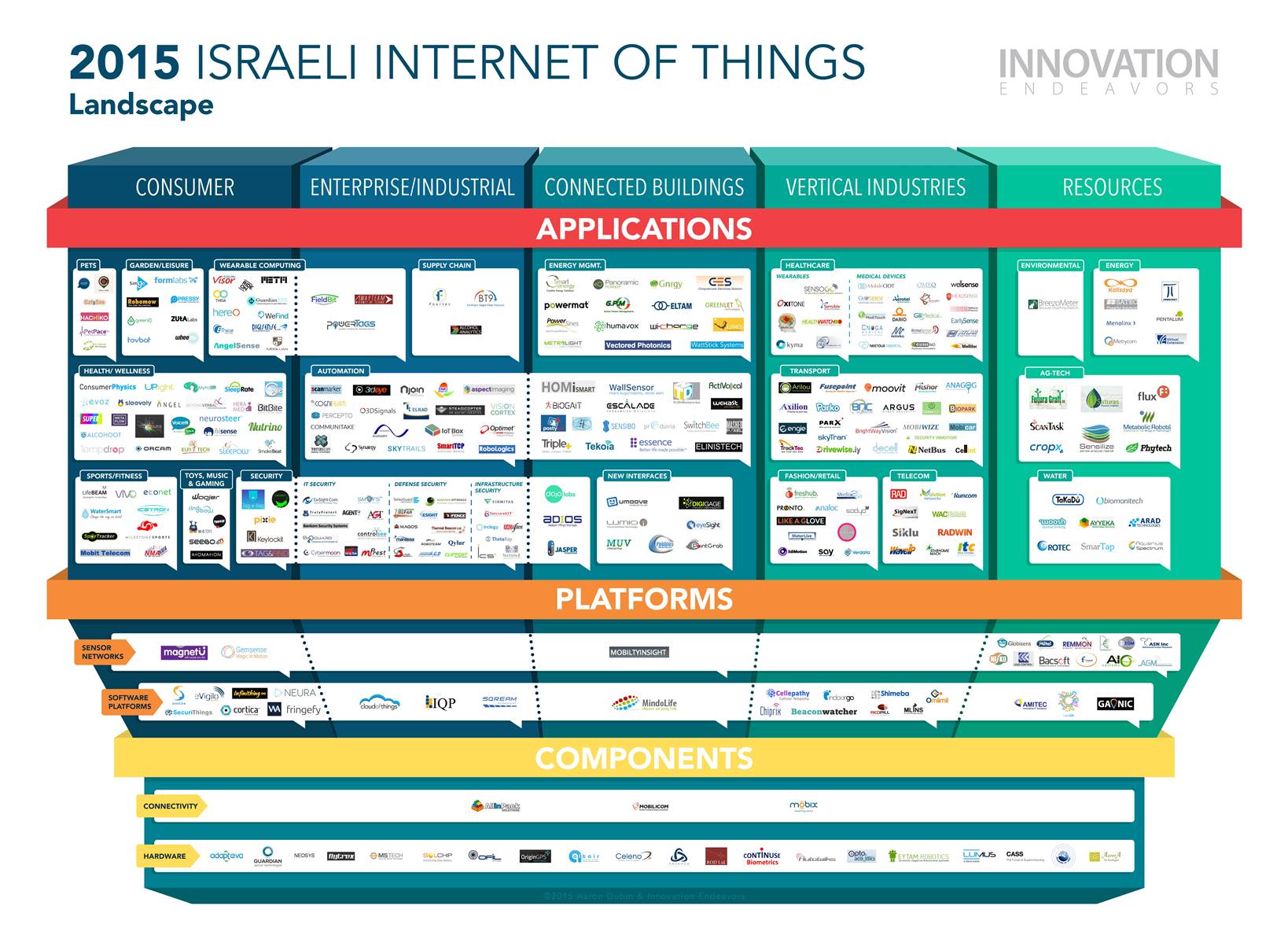
Where will Israeli IoT dominate?
“In order to predict where IoT is headed, investors try to follow the path where the most immediate value is being created for the end-user,” Dubin tells ISRAEL21c.
“In Israel and abroad, we have reached the peak of IoT hype. Thus, from 2016 onwards, Israeli IoT activity will likely continue to grow, but will start to shift away from consumer applications that have a ‘wow factor’ but lack real value for consumers, and towards more specific enterprise and industrial applications that provide immediate, predictable, and repeatable value for businesses on an ongoing basis.”
Dubin forecasts that over the next five to 10 years, such value-driven segments will propel IoT forward until the technology’s broad market applicability and relevance begin to pay off.
“This is when consumer hardware in Israel will really take off, although there will be some successful outliers along the way,” he predicts. “Right now, we are most excited about areas where Israel can leverage existing knowledge and proficiencies in IoT-ready fields, such as medical, security and ag-tech.”
Dubin furthermore says that IoT is enabling Israeli startups to better penetrate historically difficult markets for such a small country, especially the consumer hardware device market.
“We expect 2016 to produce some interesting new Israeli companies across these verticals which may well become global leaders in IoT,” says Dubin. “Due to leading tech, good timing, and a number of other enabling factors, Israel finally has the ways and means to make a lot of noise in IoT on the world stage, and each of the specific tech advantages Israel holds will play a strategic role in IoT going forward.”
For more information, click here.




